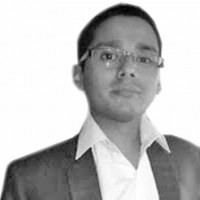Dissecting TU Service Examination Results
Kushal Pokharel
The dismal results of the TU Service Commission examination for the post of lecturers have recently caught headlines. Exposing the state of education at the nation’s oldest varsity, the results have posed pertinent questions over its academic merit. While the TU takes pride in a strong international repute with high quality education, the real picture stands at odd with the painted portrait. If the recently published service commission results are anything to go by, some serious rethinking in university education has become urgent.
Shocking Result
Noticeable is the fact that not even a single candidate could pass the examinations in economics, history, geography, social studies, educational planning and management, mathematics, computer science, culture and public administration, among others. Even the university gold medalist in mathematics could not get through. Such an incident is a severe setback for the university’s own academic credentials. Out of the 25 seats allocated for the management subject, only eight candidates could pass the written exams. The pattern of the result is similar for statistics in which the demand exceeds the supply. On the science and technology front, no candidate could pass biochemistry, food science and nutrition, livestock production technology, medical biochemistry. Even the engineering results are not so promising. For instance, none of the exam appeared candidates could manage to fulfill the vacancy of an environmental engineering faculty.
Similarly, the cancellation of exams of more than 200 candidates owing to the breach of examination protocols further highlights the quality of the examinees. In its official notice, the TU Service Commission has stated that these candidates have unduly inserted their name and phone number in inappropriate places of the anwersheets. Examination of few candidates has also been cancelled on the grounds of indiscpline in the examination hall. Such an absymal display of the candidates have downgraded the stature of the examination.
Following this result, the debate of amending the curriculum and the selection critieria of the service commission has gained greater currency. Voice for devising a more scientific curriculum and selection criteria of such an important exam that has a direct bearing on the quality of education has become strong. Whether the university attracts the best minds of the nation has once again become controversial. Against the backdrop of teaching as the least preferred career option in our context, this result is indicative of the fact that even the academically bright minds cannot crack the service commission exams. So, the question is: Are these exams really tough for a single candidate to get just pass marks to grab the desired positions? Or are there some inherent flaws in the nature of the exams and the structure of the curriculum that bars even the deserving candidates to get over the line?
At a deeper level, the result signifies that time-tested professorial merits have been compromised at the varsity. Giving a boost to the main criticism against the TU for awarding professorship on the basis of yesmanship undermining the tenets of university teaching - research, publication and academic profile - , the result have only reaffairmed the declining academic state of the varsity.
Restructuring the TU service commission in the spirit of promoting quality teaching at the university is a must. The main objective of the restructuring initiative should be to attract the best minds in university teaching by adopting a scientific criteria instead of a conventional examination system. The bulk of the assessment weightage should be given to the research engagements, the publication profile including the quality of teaching experience. In this regard, a flexible approach to adjust the competent faculties in the TU system ought to be adopted. Judging the academic merit purely on the basis of a written exam that has remained too theoritical till date appears an outdated approach.
The system of lateral entry, a growing global practice, to onboard the outstanding candidates with academic virtures including other alternative modes of teaching can also be mulled. This requires an out-of-the-box thinking, relinquishing the bureaucratic mindset. Having said that, getting the best out of the already available lecturers and professors at the university is equally pertinent. By reducing teaching loads and allowing the faculties to engage in research and publication, the face of the university teaching can be changed. Particularly the professors need to be encouraged in schoarly activities beyond the conventional teaching.
Attractive profession
Establishing university teaching as an attractive professsion requires more strategic interventions on the part of university management. An important part of this pertains to incentivising the teachers from both monetary and non-monetary dimensions which calls for a national policy rethinking accomodating these concerns. No less significant will be to shun the indiscrimnate practices of getting anyone into the profession through political channels and other unholy networks.
(Pokharel is a social science faculty and a researcher. kushalpokharel03@gmail.com)
Recent News

Do not make expressions casting dout on election: EC
14 Apr, 2022
CM Bhatta says may New Year 2079 BS inspire positive thinking
14 Apr, 2022
Three new cases, 44 recoveries in 24 hours
14 Apr, 2022
689 climbers of 84 teams so far acquire permits for climbing various peaks this spring season
14 Apr, 2022
How the rising cost of living crisis is impacting Nepal
14 Apr, 2022
US military confirms an interstellar meteor collided with Earth
14 Apr, 2022
Valneva Covid vaccine approved for use in UK
14 Apr, 2022
Chair Prachanda highlights need of unity among Maoist, Communist forces
14 Apr, 2022
Ranbir Kapoor and Alia Bhatt: Bollywood toasts star couple on wedding
14 Apr, 2022
President Bhandari confers decorations (Photo Feature)
14 Apr, 2022











